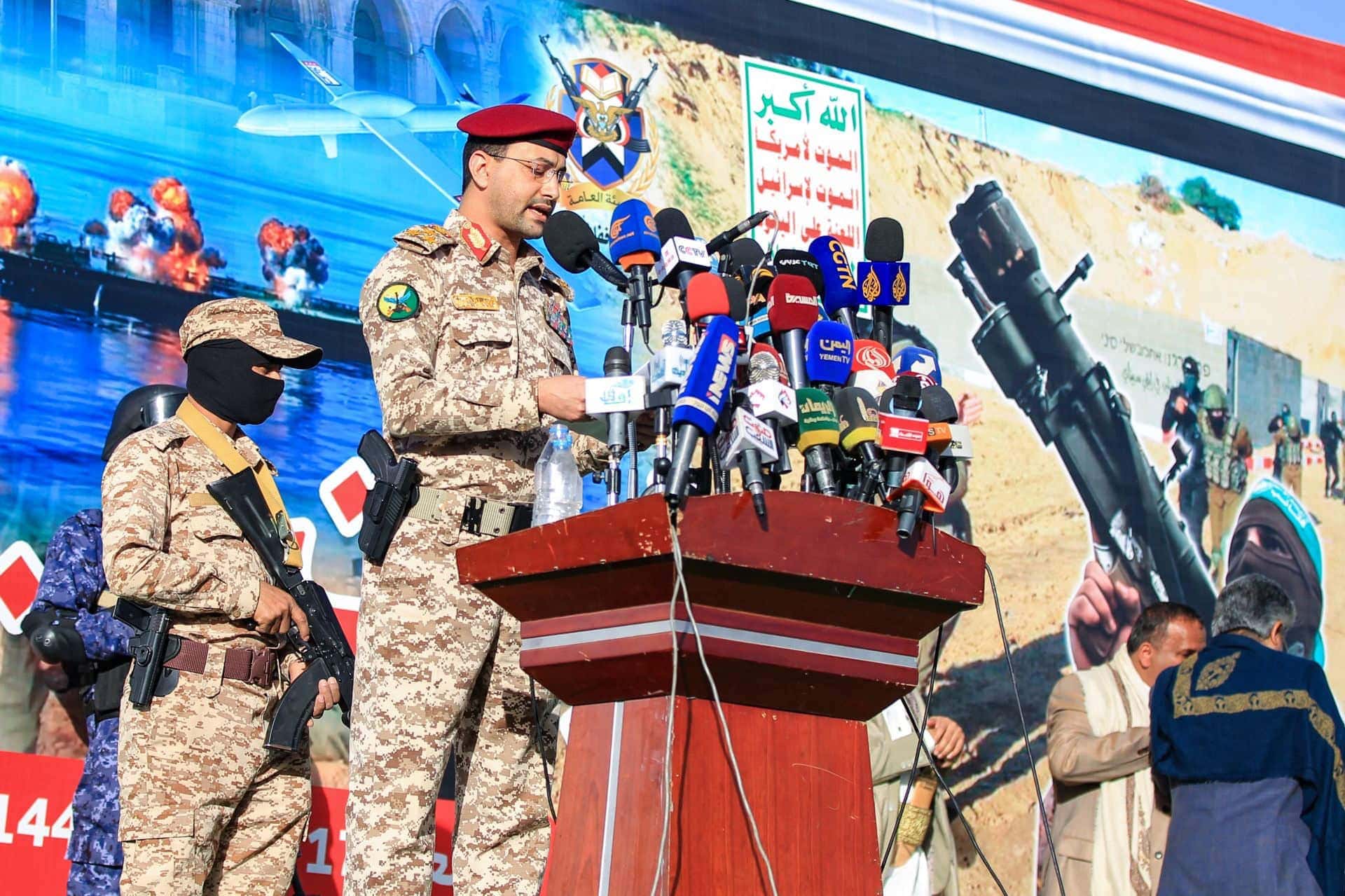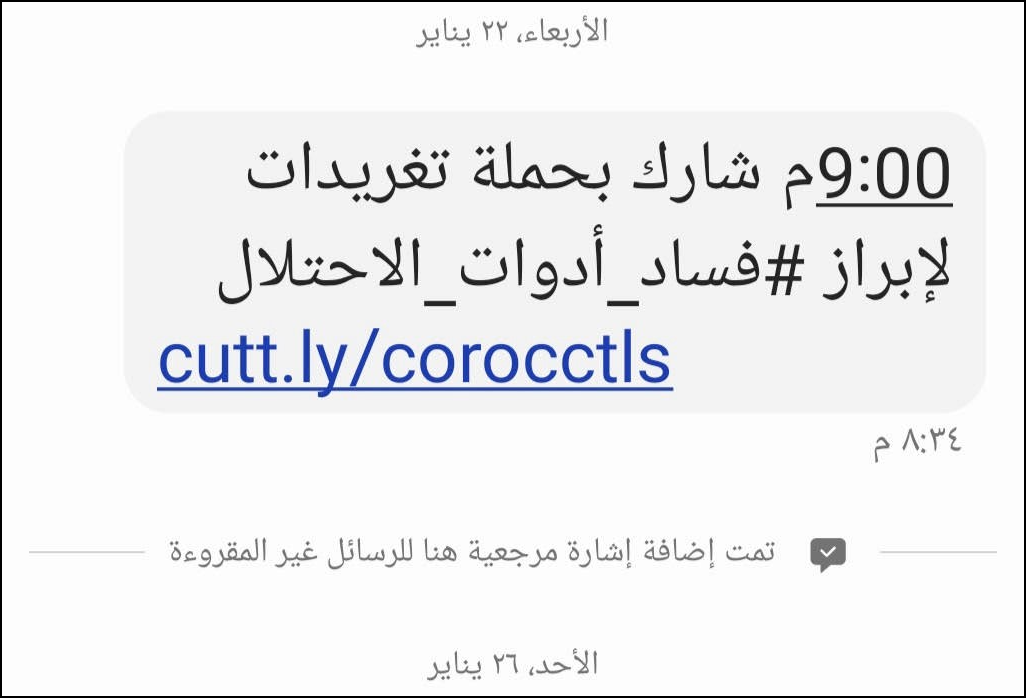
Photo: Mohammed Huwais, AFP
Last updated on: 09-02-2025 at 1 PM Aden Time

|
|
“A very important question emerges here about how the Houthis will deal with the vacuum resulting from the ceasefire deal in Gaza”.
Ibrahim Ali* (South24)
The Houthi militia have promoted their attacks against Israeli targets as being a form of support to the Palestinian resistance in Gaza. However, it has been a calculated move with deeper strategic dimensions. The Houthis have exploited the Palestinian-Israeli conflict to bolster their internal cohesion and justify their policies, especially amid the economic and security crises plaguing Yemen. Nonetheless, the ceasefire in Gaza may undermine this strategy as it will make the Houthis lose part of the momentum they gained as a result of their campaign. This means that the Iran-backed group may be among the most affected parties by the cessation of the war in which they had majorly invested.
Over the past months, the Houthis have benefited from mobilizing supporters in the North by drawing a link between their moves and the Palestinian issue that enjoys wide sympathy among the Yemeni society. Such a link has given them popular legitimacy and local support. However, this popularity may decline with the cessation of the military escalation in Gaza, threatening the Houthis with losing one of their important tools for enhancing their political and field power.
A very important question emerges here about how the Houthis will deal with the vacuum resulting from the ceasefire deal in Gaza. In light of the cessation of military operations, the Houthis may face a big challenge to maintain the gains they have achieved during the war. What are the strategies they are likely to adopt to guarantee benefiting from these gains after the war is ended? How will they secure their position regionally and internationally in the post-war phase, especially considering the political and military changes that may be imposed by the truce? These questions open the door for a deeper analysis of how the Houthis will make use of the new reality to maintain their regional influence.
Various Campaigns
Immediately following the Gaza ceasefire agreement (January 15), the Houthis launched a media and propaganda campaign aiming to enhance their position within Yemen and regionally. This campaign was designed in a very careful way to fill the vacuum resulting from the suspension of their so-called military operations “in support of Gaza”.
This campaign is based on highlighting the “pivotal role” that the Houthis claim they have played in supporting the Palestinian issue and compelling Israel to agree to the ceasefire deal. This campaign aims to boost the morale of Houthi supporters and maintain the momentum of the popular support they have enjoyed as a result of these operations.
- Religious Campaign: This campaign includes a variety of media activities, the most prominent of which is the almost daily religious lectures delivered in the mosques of the capital, Sanaa. These are intended to draw a link between any possible escalation against the Houthis and Israel.
- Campaign against the Legitimate Government: The Houthis have launched a widespread electronic campaign against the Yemeni Internationally-Recognized Government, using the hashtag #corruption_of_the_tools_of_occupation . The call to participate in the campaign addresses all people in the Houthi-controlled areas, with the Interior Ministry sending the messages via the local telecommunication companies. This campaign is being run parallelly to a similar one in media platforms affiliated with the Houthis. This appears to be part of the Houthi strategy of engaging in the war against the Yemeni government under slogans that align with the Palestinian issue. This adds a political and ideological dimension to the Houthi campaign with the aim of mobilizing more support

The message “#corruption_of_the_tools_of_occupation” sent by the Houthi telecommunications company via SMS service, January 22, 2024 (South24 Center).
- Community Protests: The Houthis carried out a number of tribal protests in different Yemeni governorates. Thousands of tribal people gathered in a symbolic show to express rejection of any incoming military escalation. These moves are aimed to highlight the Houthi commitment to the Palestinian issue through mass events that promote the idea of shared victory against Israel.
- Military Mobilization: The Houthis announced the conducting of military exercises in some areas, especially in the governorate of Hodeidah where training courses were organized for some graduates of the “Aqsa Storm”. These maneuvers are part of the Houthi program to prepare their fighters for any future military moves.
In a remarkable move, the ’Popular Forces‘ affiliated with the Houthis held a huge military parade in late January in Hajjah governorate that saw the participation of 20,000 graduates of the military courses that were conducted as part of the ’Aqsa Storm‘ training program that targeted people of Tihamah’s districts, according to media outlets with close ties to the Houthis. Notably, similar parades were held in other Yemeni governorates under the Houthi control.
- Media Coverage: The Houthi media has intensified promotion of the current activities of the group. They have sought to highlight the “big support” delivered by the group to the Palestinian resistance. They published many media reports to demonstrate the link between the Houthi activities and the Palestinian issue in an attempt to draw attention toward this major issue and depict the Houthis as part of a united front against the Israeli occupation.
- Paying Salaries: In this regard, the issue of paying the salaries to employees in the areas controlled by the Sanaa government (internationally unrecognized) has emerged as one of the most important files. Through this move, the Houthis are seeking to enhance their social and economic cohesion, especially considering the choking economic crisis in Yemen.
On the same day (January 25) when Hamas released four Israeli female hostages, the Houthis announced the release of 153 Yemenis who were detained in their prisons for years. The Head of the Houthi War Prisoners Committee Abdulkadir Mortada, who was recently sanctioned by the United States, said that humanitarian cases constitute the majority of those who were released, especially the wounded, sick and elderly people.
On January 24, the Houthis launched a new arrest campaign against employees of UN organizations, accusing them of espionage, as they had done earlier. In response, the UN condemned the arrests and announced it was suspending its activities in the Houthi areas until further notice. This move reflects the Houthi’s keenness to stage activities and actions that always revive their link to the Palestinian issue.
These Houthi moves come amid concerns about the decline of popular support for the group, particularly after the cessation of the war in Gaza that was used as a platform for launching several media campaigns and popular mobilization. Therefore, focusing on security, humanitarian and livelihood issues of the people constitutes a Houthi attempt to boost their legitimacy and maintain their influence.
New Strategy
Accordingly, the new Houthi strategy features linking any “hostile act” against them to their stance in supporting the Palestinian issue. Through this strategy, the Houthis seek to safeguard themselves and make political gains by presenting themselves as a victim of their principled stance. This has been clear in the Houthi response to their re-designation as a ’Foreign Terrorist Organization‘ by the US. They directly linked this move to their support for Gaza as shown in the Houthi official statements by their leaders. This is although the Trump administration’s first presidential term designated the Houthis as ’FTO‘ in 2021.
Therefore, the Houthis will seek to promote the idea that the targeting campaigns against them are an attempt to weaken all that represents “resistance”. Thus, they allege that targeting them aims essentially to target the Palestinian issue. They seek to depict themselves as a natural ally of the Palestinians in resisting the Israeli occupation. Moreover, the Houthis seek to portray their issue as a natural extension of the Palestinian resistance. They insist that whatever they face isn’t limited to regional alliances but extends to “Western hegemony projects” that aim to undermine their role in the region.
In this regard, the Jerusalem Center for Security and Foreign Affairs (JCFA) said that “the final goal of the Houthis isn’t destroying Israel or demonstrating blind loyalty to Tehran whose fortunes may soon falter. The Houthi ambitions are more pragmatic, which includes securing their survival and gaining international recognition and legitimacy”.
‘The Washington Institute’ believes that due to the Houthi history of using ceasefires to re-assemble and re-arm themselves they may exploit the current cessation of hostilities to prepare for future Iran-backed attacks.
Conclusion
With the ongoing escalation in the region, the Houthis seek to exploit the latest events in reaffirming their power and influence over the regional arena. With the cessation of military acts in Gaza, it appears that the group is likely to face big challenges to maintain the popular and political momentum they have gained through their attacks in the Red Sea and against Israel.
However, the Houthis apparently intend to adapt to the new situation through intensifying their media campaigns and expanding their local military activities in an attempt to enhance their internal power and prepare for any changes in the Yemeni or regional arena, particularly after their FTO designation. This is along with focusing on exhibiting their strength in the face of the Yemeni government and its regional backers.